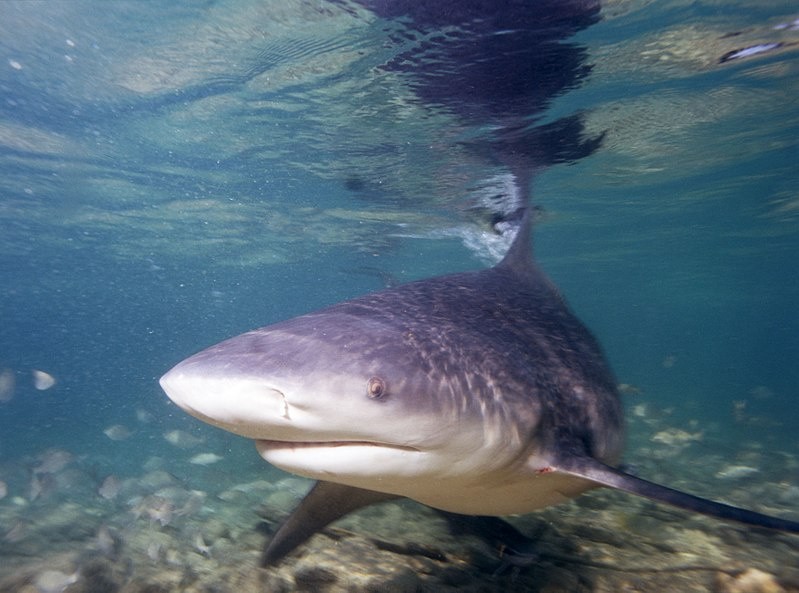Could there be an increase in shark sightings in the Midwest?
Sharks have traveled up the Mississippi River to the area in the past.
Additionally, some shark scientists think that one species may come back more frequently in the future.

Most Shark Species
The majority of shark species are marine creatures.
Many of the tens of millions of residents in the Midwest's landlocked region may have never witnessed one.
Sharks that can flourish in freshwater include the bull shark, and they may now be migrating deeper inland than ever before, according to AccuWeather.
According to Kevin Feldheim, manager of the Pritzker Laboratory at the Field Museum of Natural History in Chicago, "Bull sharks are generally in the top three in terms of [being] harmful to humans, but they're gorgeous animals."
He further noted two sightings in the Mississippi River over the previous century, one in Alton, Illinois, in 1937, and the other in Columbia, Missouri, in 1995.
Bull Sharks

According to the National Wildlife Federation, bull sharks may be found worldwide.
They often wander the East Coast and the Gulf of Mexico shorelines in the United States. Because of how much the sharks prefer the shallow coastal waters, people regularly encounter them.
According to Feldheim, other sharks can survive in environments with less salt, but they cannot navigate rivers and lakes like the bull shark.
This allows them to swim out of the ocean and deep into the north-central United States, where summer temperatures might rise by up to 11 degrees Fahrenheit by the end of the century due to climate change.
Bull sharks and their use of freshwater could change as the climate changes, according to Mike Heithaus, a marine biologist at Florida International University.
"We're seeing them shift their ranges. Some cold-blooded species are being found further north than where they used to be found."
Heithaus claimed that even if the sharks' behavior could alter, there is very little chance that anyone will witness one this far from the water.
Traveling Upstream
Heithaus said several obstacles might stop these sharks from traveling upstream.
"Their population isn't what it used to be, so I wouldn't worry about a bull shark swimming in waters in the Midwest," he noted.
Scientists who strive to find out what causes these occurrences frequently come up with even more questions.
Are these Isolated Cases?
According to Ryan Shell, a U.S. paleontologist, "We don't know how physical impediments like dams and locks play a role or what would drive the sharks to travel upstream. The Forest Service notified the Alton Telegraph. We can explain the what, when, and where of the sharks' actions, but not the how or why."
Although uncommon, there may still be bull shark sightings in the Mississippi.
It's simple to brush these situations off as isolated incidents, according to Shell.
However, that dismisses the intriguing query of how these creatures managed to capture and travel upstream in the first place.
For more animal news, don't forget to follow Nature World News!
© 2025 NatureWorldNews.com All rights reserved. Do not reproduce without permission.



